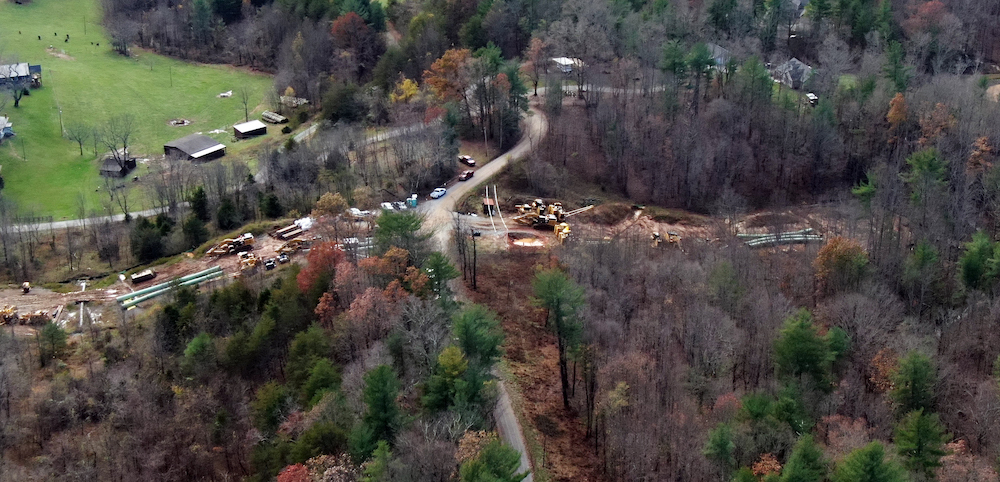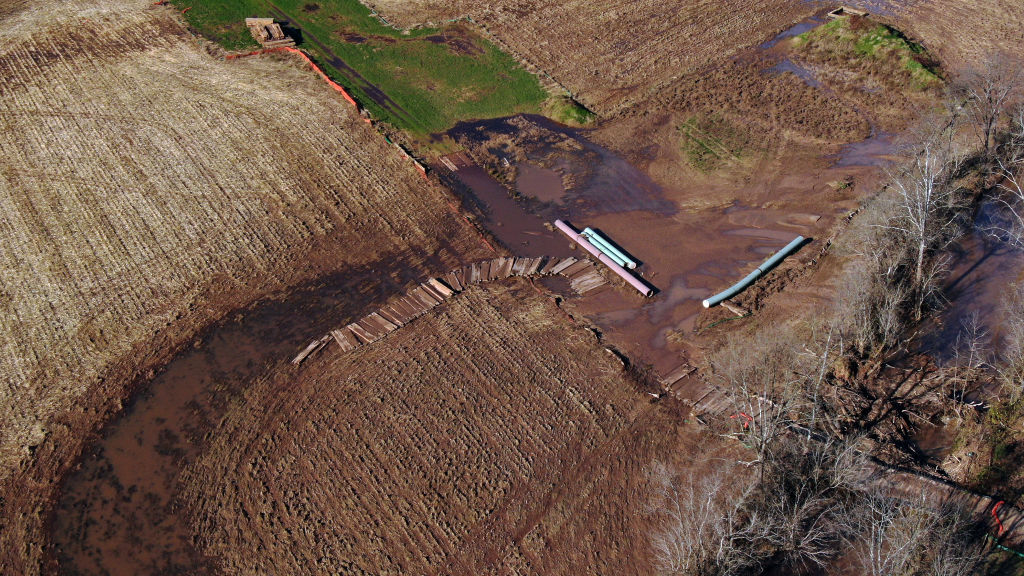Cleaning Up Coal Ash
For well over a century, power plants across the country have burned coal to generate electricity. And for just as long, leftover coal ash has been dumped in open, unlined pits near the power plant, usually located on a river or lake. Every year, U.S. power plants produce 130 million tons of coal ash, which is the second largest waste stream in the country after municipal garbage.
Coal ash concentrates the toxic heavy metals found in coal, including arsenic, mercury, lead and selenium. Stored in unlined, wet impoundments, coal ash has been leaking these toxics into our groundwater and surface waters for years. Sometimes these impoundments collapse — with disastrous results.
Yet government regulations for coal ash management are either non-existent or sparse, and there is little enforcement of the regulations that do exist. In North Carolina, this lack of oversight — and the complicity between state regulators, elected officials and Duke Energy — came to a boiling point in February 2014 when one of Duke’s coal ash impoundments spilled 39 million tons of ash into the Dan River.
Citizens living near North Carolina’s 33 coal ash impoundments — all of which have leaked — have fought for transparency from Duke and the state, and for cleanup of the pollution that threatens their property value, health and family. Their actions forced this issue into the headlines of news networks and to the forefront of environmental justice conversations in the United States.
Appalachian Voices stood with these communities as we worked for years to compel Duke Energy and the N.C. Department of Environmental Quality to excavate coal ash from all the North Carolina sites and dispose of it either in lined, dry landfills, away from waterways, or by recycling it for concrete or other uses, provided it’s done in a manner that protects public health and the environment.
On Jan. 2, 2020, North Carolina announced a historic settlement with one of the state’s most powerful corporations and polluters, Duke Energy. The settlement requires Duke to move nearly 80 million tons of toxic coal ash at six of its power plants to properly lined landfills onsite or recycle it.

Learn information about specific coal ash impoundments in the South, including health threats and safety ratings:
Additional Resources
Fact sheets, videos, links to academic research, and more
Sign Up to Act
Help us protect the health of our communities and waterways.
Latest News
House passes Inflation Reduction Act, which will mean historic climate and energy investments, a huge victory for miners with black lung and more
FOR IMMEDIATE RELEASE August 12, 2022 CONTACT Dan…
Inflation Reduction Act passes the Senate with historic climate investments, permanent black lung excise tax extension, rural energy infrastructure and more
CONTACT: Molly Moore, Director of Program Communications, (847)…
SELC, Appalachian Voices seek release of opinion that Virginia’s withdrawal from RGGI would violate law
CONTACT: Alexandra Werner-Winslow, SELC Communications Manager (VA), awernerwinslow@selcva.org,…
Appalachian Voices opposes permitting reform proposal by Sen. Manchin and Democratic leadership
Residents of every Appalachian and environmental justice community deserve to benefit from climate policy, and we firmly oppose any approach by Congress that sacrifices frontline communities as part of a political bargain.
Floods Devastate Communities Throughout Central Appalachia
In flood-ravaged areas of Central Appalachia, recovery is expected to be a long process.
Thousands submit comments in opposition to Mountain Valley Pipeline
Since construction began in 2018, MVP has been cited for hundreds of water quality violations in West Virginia and Virginia, racking up millions of dollars in fines. In addition to water impacts, pipeline opponents have raised concerns about air emissions from compressor stations, safety issues, lack of need, and the impact of building out more fracked-gas infrastructure at a time when decarbonization is crucial to addressing the climate crisis.










